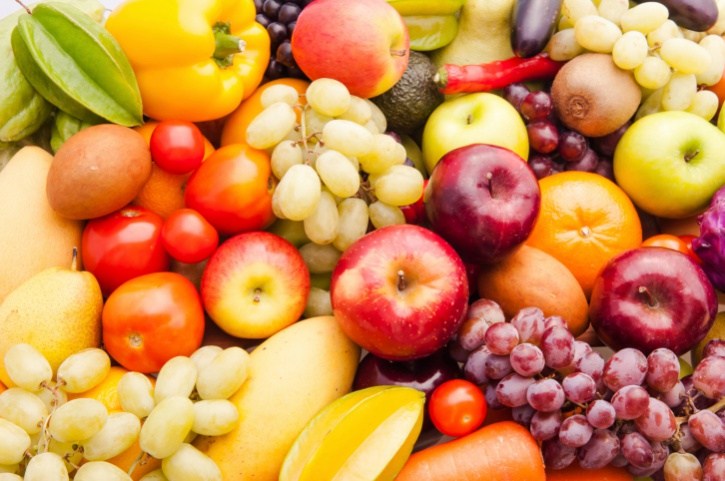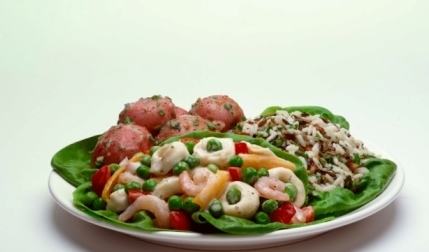Beware The Tea You Sip
Green tea has become the beverage of choice for people who want to live a long, healthy life. And the latest studies prove its power to fight cancer, Alzheimer’s disease and a host of other ills.
But as usual, Big Food has jumped on the bandwagon to make money by hawking poor-quality tea in pretty bottles.
In their relentless drive for profit, drink makers have churned out dozens of brands of bottled green tea with the aim of cashing in on the beverage’s reputed healing power.
The trouble is that almost all of these teas are a waste of good water – because Big Food’s processing has stripped of most powerful ingredient in green tea.
Green tea has a centuries-old reputation for healing the mind and body. Its powers come from antioxidants called catechins.
And the most potent catechin in green tea is epigallocatechin-3-gallate, or EGCG for short.
Researchers at Penn State University recently used an extract of EGCG to kill oral cancer cells. And they discovered the antioxidant caused the cancer cells to self-destruct – and it even protects healthy cells while doing it.1
And researchers at the University of Missouri tested EGCG in mice and found that the antioxidant significantly reversed the brain damage caused by Alzheimer’s.2
Studies over the past decade have also documented EGCG’s power against obesity,3 diabetes,4 cardiovascular disease5,6 and Parkinson’s disease.7,8
Despite numerous studies showing EGCG’s potency as a healer, the FDA has condemned its inclusion in a number of products. And Big Pharma has ignored it, because it’s a natural substance and can’t be patented.
Meanwhile, studies have also shown that as a scavenger of free radicals, EGCG can prevent and repair cell damage. It also combats the effects of pollution, sunlight and smoking on skin.
But when you buy green tea in a bottle, you will most likely end up sipping overpriced, caffeine-laced, sugar water with barely any of the brew or its antioxidants.
A report by ConsumerLab.com, the independent tester which verifies the quality of many of my own products, recently revealed the truth about four brand-name, bottled green teas.9,10
Only one brand, Harney & Sons Organic Green, delivered 46.8 mg of EGCG, which is close to my recommended dosage. In the three other brands, EGCG measured significantly lower – and one, Diet Snapple Green Tea, came in as low as 3.5 mg. The home-brewed teas that were tested ranged up to 86 mg., although some were as low as 25 mg.
I recommend you get 50 mg. of EGCG a day. But you should get the antioxidant from supplements rather than tea. You can find these supplements online or at your local health food store.
I say this for two reasons. One, it’s hard to know if your tea will deliver enough of the antioxidant. Two, many green tea leaves have been contaminated with lead. The most contaminated leaves come from China. The least contaminated come from Japan.
If you do brew your own tea, then use a tea bag or tea leaves and a strainer to reduce the chances of lead leeching into your drink.
To Your Good Health,
![]()
Al Sears, MD, CNS
1. Swayne, M. “Green tea ingredient may target protein to kill oral cancer cells.” Penn State News. January 28, 2015. news.psu.edu/story/342487/2015/01/28/research/green-tea-ingredient-may-target-protein-kill-oral-cancer-cells. Retrieved 5-6-2015.
2.Walker, J.M., et al. “Beneficial effects of dietary EGCG and voluntary exercise on behavior in an Alzheimer’s disease mouse model.” J Alzheimer’s Dis. 2015;44(2):561-72. doi: 10.3233/JAD-140981.
3. Wolfram S, Wang Y, Thielecke F. Anti-obesity effects of green tea: from bedside to bench. Mol Nutr Food Res. 2006 Feb;50(2):176-87.
4.Wolfram S, Raederstorff D, Preller M, et al. Epigallocatechin gallate supplementation alleviates diabetes in rodents. J Nutr. 2006 Oct;136(10):2512-8.
5.Lambert JD, Sang S, Yang CS. Biotransformation of green tea polyphenols and the biological activities of those metabolites. Mol Pharm. 2007 Nov;4(6):819-25.
6.Wolfram S. Effects of green tea and EGCG on cardiovascular and metabolic health. J Am Coll Nutr. 2007 Aug;26 (4):373S-88S.
7.Mandel S, et al. “Iron dysregulation in Alzheimer’s disease: multimodal brain permeable iron chelating drugs, possessing neuroprotective-neurorescue and amyloid precursor protein-processing regulatory activities as therapeutic agents.” Prog Neurobiol. 2007 Aug;82(6):348-60.
8.Weinreb O, Mandel S, Amit T, Youdim MB. Neurological mechanisms of green tea polyphenols in Alzheimer’s and Parkinson’s diseases. J Nutr Biochem. 2004 Sep;15(9):506-16.
9.ConsumerLab.com. consumerlab.com/news/Results%20of%20green%20tea%20product%
20tests%20published%20online./5_21_2013/. Retrived 5-6-15.
10.ConsumerLab.com. “Product review: Green tea supplements, drinks and brewable teas review.”
December 21, 2012. consumerlab.com/reviews/Green_Tea_Review_Supplements_and_Bottled/
Green_Tea/.Retrieved 5-6-15.
-
Saving Energy Should Be Everyones Responsibility
There are a few gadgets out there that try to reduce your energy cons
-
Several Fantastic Methods For Losing Weight
These days, an individual can discover m
-
*** The Best Diet is NO Diet at All
As a nutritionist, the most common question I get daily is “W
-
Practical Tips To Lose Weight Quickly And Easily
With all the contradicting information out there, you can be eas
-
A Revolutionary Product Called Hoodia Part 2
The rediscovery of the wealth of the wonder drug Hoodia was a chance o
-
A Free Diet Plan for Beginners
Follow these easy tips to Lose weight fast. Try to avoid foods cont
- DON'T MISS
- Understanding Metabolism: How to Boost Yours with Exercise
- how to lose belly fat in one week
- Beach Body Tips For Looking Your Best This Summer
- Introduction of natural herbal diet supplements
- Understanding Adult Obesity
- How to Stay on Track with Healthy Eating and Weight Over the Holidays
- Top Tips To Lose Weight Quickly And Painlessly
- Emotional Eating and Weight Loss
- HCG Towards Weight Management And Weight Loss
- More Ideas On How You Can Lose Arm Fat Quickly




